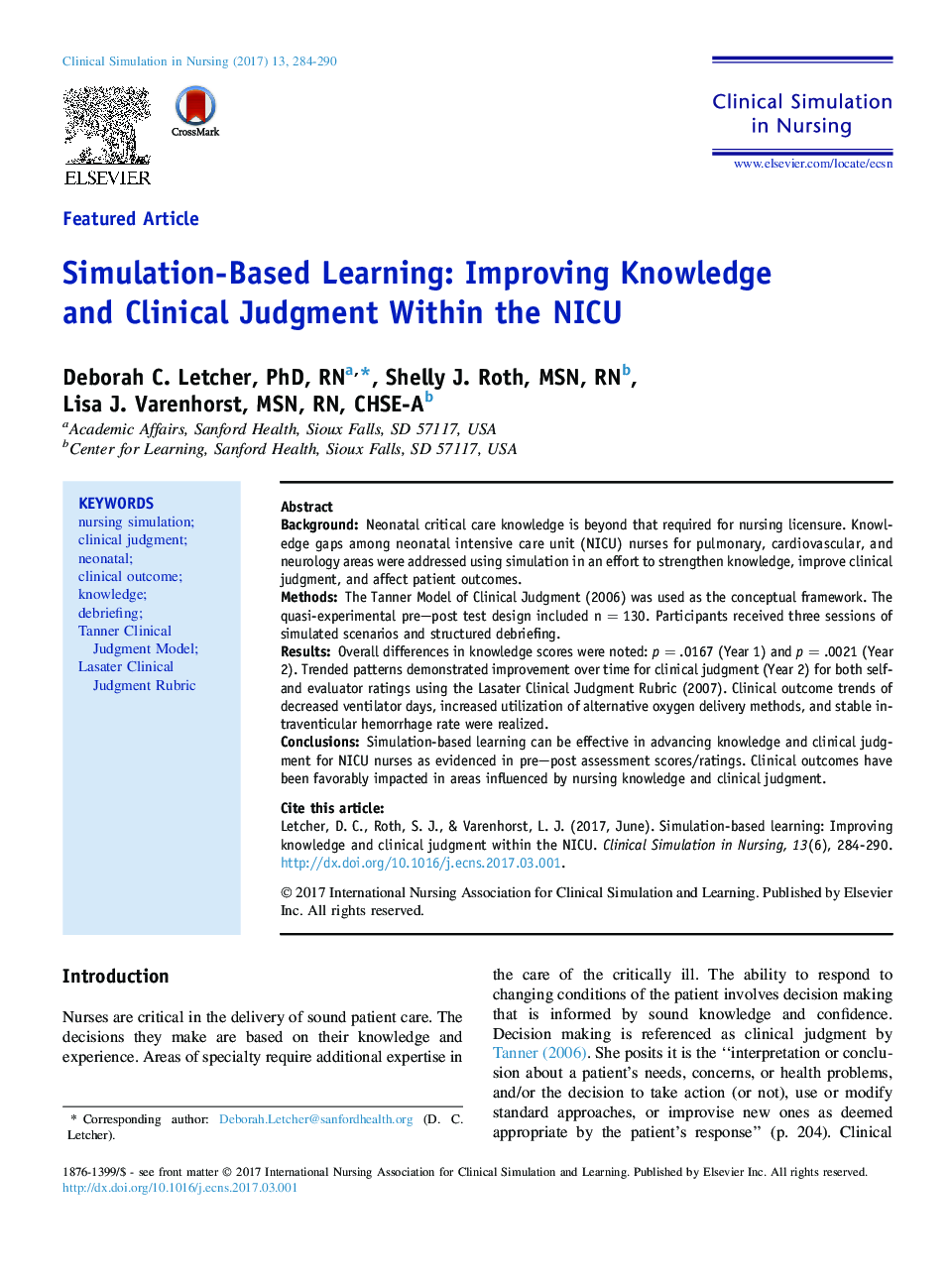| Article ID | Journal | Published Year | Pages | File Type |
|---|---|---|---|---|
| 5567504 | Clinical Simulation in Nursing | 2017 | 7 Pages |
â¢Neonatal nurse knowledge and clinical judgment can be strengthened through the use of simulation-based learning, inclusive of debriefing.â¢Simulated experiences can be constructed to provide progressively challenging situations whereby the learner is asked to problem solve, prioritize, and clinically reason.â¢Growing knowledge and clinical judgment within the neonatal intensive care unit nursing staff has been associated with improved patient outcomes.
BackgroundNeonatal critical care knowledge is beyond that required for nursing licensure. Knowledge gaps among neonatal intensive care unit (NICU) nurses for pulmonary, cardiovascular, and neurology areas were addressed using simulation in an effort to strengthen knowledge, improve clinical judgment, and affect patient outcomes.MethodsThe Tanner Model of Clinical Judgment (2006) was used as the conceptual framework. The quasi-experimental pre-post test design included n = 130. Participants received three sessions of simulated scenarios and structured debriefing.ResultsOverall differences in knowledge scores were noted: p = .0167 (Year 1) and p = .0021 (Year 2). Trended patterns demonstrated improvement over time for clinical judgment (Year 2) for both self- and evaluator ratings using the Lasater Clinical Judgment Rubric (2007). Clinical outcome trends of decreased ventilator days, increased utilization of alternative oxygen delivery methods, and stable intraventicular hemorrhage rate were realized.ConclusionsSimulation-based learning can be effective in advancing knowledge and clinical judgment for NICU nurses as evidenced in pre-post assessment scores/ratings. Clinical outcomes have been favorably impacted in areas influenced by nursing knowledge and clinical judgment.
